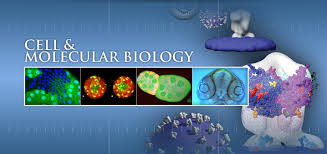Ph.D. in Biosciences - Cell and Molecular Biology: Introduction, Admission, Registration, Eligibility, Duration, Fees, Syllabus 2024

Introduction:
A Ph.D. in Biosciences with a concentration in Cell and Molecular Biology is designed for those aiming to push the frontiers of biological research and contribute to groundbreaking discoveries in medicine, agriculture, and pharmaceuticals. This specialized doctoral program prepares students for a career in scientific research and teaching at the most advanced levels.
Admission Process:
- Application Submission: Compile and submit an application package that includes a personal statement, official transcripts, and CV.
- Letters of Recommendation: Secure letters from academic professionals familiar with your academic and research background.
- GRE Scores: Most programs require GRE scores, especially focusing on quantitative and analytical writing sections.
- Interviews: Face interviews with prospective advisors and program directors to discuss your research interests and fit for the program.
- Research Proposal: Some programs require a preliminary research proposal to gauge your research thinking and alignment with available resources.
- Final Acceptance: Depending on the program, you might need to secure a faculty advisor before final acceptance.
Eligibility Criteria:
- Master’s Degree: Typically, a master's degree in a related field is required, though some programs might accept strong candidates with only a bachelor’s degree.
- Research Experience: Demonstrable experience in research, particularly in cell or molecular biology.
- Academic Records: Strong academic records, particularly in relevant scientific courses.
- Laboratory Skills: Practical laboratory skills relevant to cell and molecular biology.
- Scientific Communication: Ability to communicate scientific ideas effectively, both in writing and orally.
- Commitment: Demonstrated commitment to a career in biosciences research.
Completion Time:
The completion time for a Ph.D. in this field typically ranges from 4 to 6 years, depending on the specific research project, student dedication, and program structure.
Career Opportunities:
- Academic Researcher: Lead research projects and teach at universities.
- Biotechnologist: Develop products and technologies using cell and molecular biology techniques.
- Genetic Engineer: Modify genes to produce desired traits in biological organisms.
- Pharmaceutical Developer: Design and test pharmaceuticals based on cellular and molecular interactions.
- Scientific Consultant: Provide expert advice on biotechnology and pharmaceutical projects.
- Policy Advisor: Influence science policy related to health, environment, and biotechnology.
Syllabus:
- Advanced Cell Biology: In-depth study of cell structure and function.
- Molecular Genetics: Understanding genetic mechanisms at a molecular level.
- Bioinformatics: Use of statistical and computational tools to analyze biological data.
- Biophysical Methods: Techniques to study molecular structures and interactions.
- Stem Cell Technology: Use and manipulation of stem cells in research and therapy.
- Cancer Biology: Exploring the cellular and molecular basis of cancer.
Internship Opportunities:
- Research Laboratories: Engage in cutting-edge research in academic or industrial labs.
- Biotech Companies: Gain practical experience in biotech product development and testing.
- Healthcare Facilities: Internships in medical research facilities focusing on cellular and molecular therapies.
- Government Agencies: Work on regulatory aspects or policy development in biosciences.
- Non-profits: Participate in research initiatives aimed at public health improvement.
Scholarships and Grants:
- University Scholarships: Many institutions offer funding specific to biosciences students.
- Government Research Grants: Funded research projects by entities like the NIH or NSF.
- Private Research Foundations: Competitive grants from organizations invested in scientific research.
- International Fellowships: Opportunities for international students to receive funding.
- Industry Sponsorships: Financial support from biotech and pharmaceutical companies for relevant research.
FAQs:
What makes Cell and Molecular Biology a unique concentration within biosciences?
This concentration focuses on the cellular and molecular mechanisms that underpin life processes, crucial for innovations in medicine and biotechnology.
What are the key skills needed to succeed in this Ph.D. program?
Strong analytical skills, proficiency in laboratory techniques, deep understanding of biological systems, and ability to conduct independent research.
How competitive are these Ph.D. programs?
Programs are highly competitive due to their potential to lead to significant advancements in biotechnology and medicine.
What types of research projects are typical in these programs?
Projects often involve gene expression studies, protein interactions, disease mechanisms, or developmental biology.
Can I collaborate with industries during my Ph. D.?
Yes, many programs encourage industry collaborations to enhance research relevance and application.
